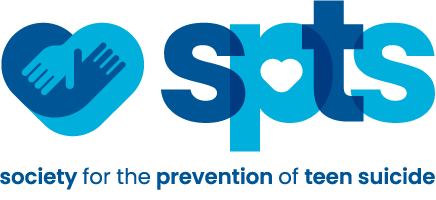There is no simple answer. Certainly there are predictors of success, but often teens deemed likely to succeed fall by the wayside when they encounter the multitude of stressors common in college settings.
It is clear that being engrossed in the search for the best school possible, parents and teens often neglect to focus on developing the emotional skills that will serve them well in this new environment.
The impetus to develop proactive services to increase the odds of post-high school success grew out of many experiences in my professional career, including counseling parents and their teens after long-anticipated dreams of a wonderful college experience were shattered. My professional commitment to suicide prevention also was a catalyst.
Headlines about suicide rates make us feel sad and worry us, as does news of binge drinking deaths, date rape, drug abuse, and the epidemic of eating disorders on college campuses. According to the National Institute of Alcohol Abuse and Alcoholism, 1800 college students between the ages of 18 and 24 die each year from alcohol-related injuries including motor vehicle crashes. The American Foundation for Suicide Prevention reports that nearly 4000 people aged 15-24 die each year by suicide.
As parents, such stories and statistics make us feel terribly vulnerable. The knee-jerk reaction may be to become more protective, to stay tightly connected as a way of controlling what we somehow feel we can control. But is that an effective solution?
Articles in The New York Times, The Wall Street Journal and segments on NPR describe “helicopter parents” who continue to hover over their children, negotiating their world even when they arrive at college. Colleges find themselves developing new rules to keep parents at bay.
So what essential life skills do we need to foster a confident college experience?
Clearly, effective parenting for the college transition starts years before your teens are picking out their comforters at Bed, Bath and Beyond. We need to create a home environment that encourages effective communication, intimacy, honesty, self-awareness, and the development of coping strategies for anxiety and stress. Effective parents help their teens develop academic and social assertiveness, problem-solving skills, financial literacy, comfort with diversity, and a healthy perspective on issues related to sex, drugs and alcohol. The resulting self-confidence will service them well in the challenging college environment of the 21st century as well as in life in general.
There are additional factors to consider for teens with learning disabilities and depression. Now there are more effective treatments available and many colleges are providing appropriate resources. Students with these backgrounds need to research which colleges have the quality resources and responsiveness to match their needs. Even with the best services, self-advocacy skills are crucial in staying afloat.
Once at college, stress factors exist in many arenas: academic, cultural, and social. College students face a variety of issues related to sexuality, roommates, and making responsible choices in a culture where partying and other diversions are everywhere.
For all students, the parent-child relationship will change. Listen to your teen. Ask what frequency and which form of communication feels right to them. Respect their need to be more independent and to find their niche in their new home. Let them know there will be times when you disagree with them but that you continue to love and be there for them. It may be flattering on some level to be consulted about every detail, but parents should encourage their teens to come up with a solution of their own in the matters that aren’t life-changing.
Even in the best of circumstances, there will be ups and downs at college, especially during the first semester, and parents always need to listen well and be aware of the warning signs of larger problems. Freshmen who are feeling low in the beginning, often feel that they are the only ones who have not found happiness. They are reluctant to let their new friends know of their vulnerabilities.
Parents need to normalize their teens’ feelings while keeping alert to changes in sleeping, appetite, level of energy, concentration, mood, socialization, and substance use. Have the cell phone numbers of their resident advisor and roommate. Trust your gut reaction and consult a mental health professional on campus or someone you trust locally, when you sense a serious adjustment problem is occurring.
Biography
Maureen Tillman received a Masters in Social Work from the University of Pennsylvania in 1975 and has worked as a psychotherapist with adolescents, families and adults for over thirty years.
Her expertise with adolescents transitioning to college, and College with Confidence grew as an extension of many years in clinical practice, client advocacy, and community education.
Maureen was the President of the New Jersey Association of Suicidology for many years, and has been a group facilitator for Survivors of Suicide for the American Foundation for Suicide Prevention. She is dedicated to educating people about depression and suicide. She is also passionately committed to teaching teens, parents, school personnel, companies, and physicians about the life skills crucial for a successful college transition.
Maureen’s private practice is based in Morristown, New Jersey and she is the mother of two recent college graduates.
For more information, go to www.collegewithconfidence.com

